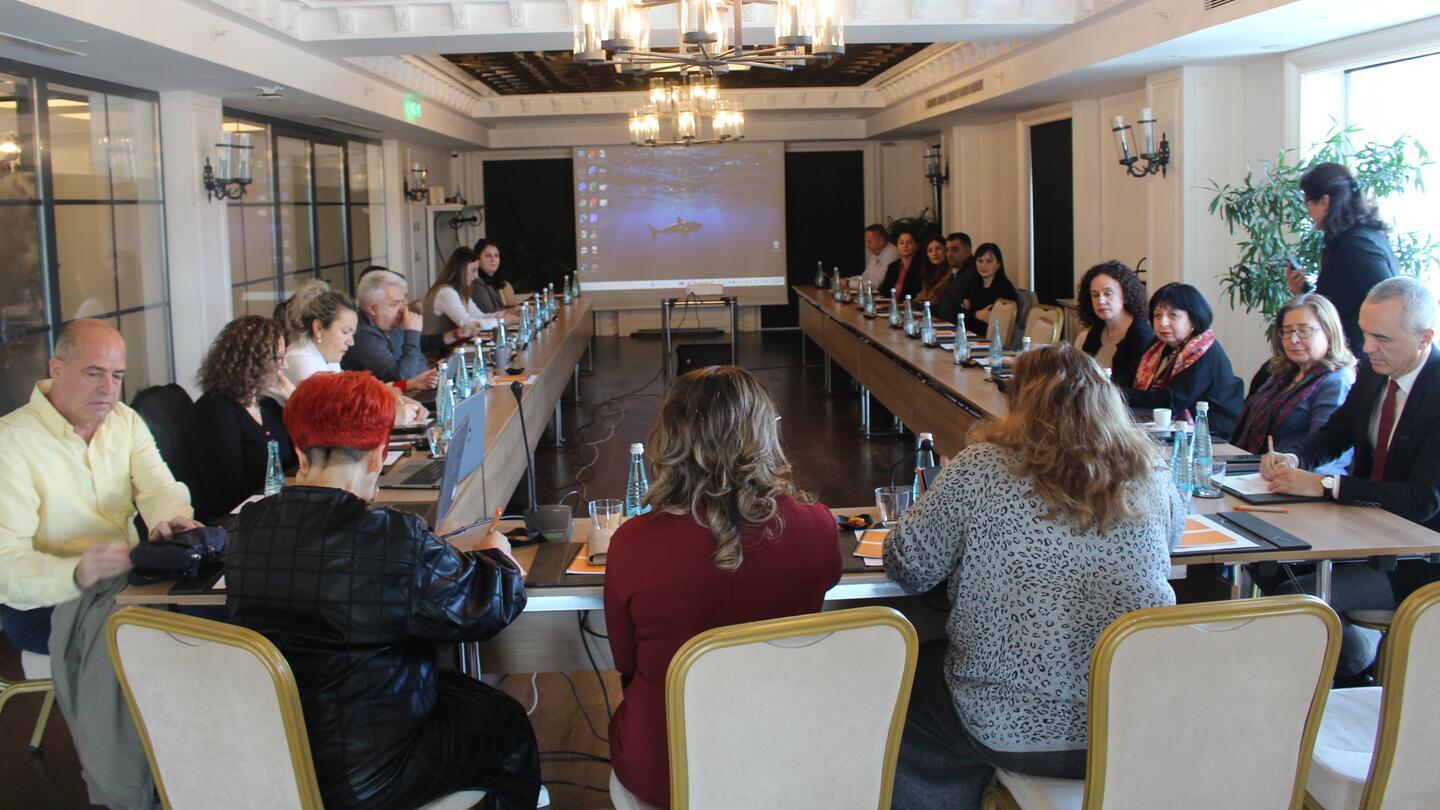UNFPA and the Ministry of Health and Social Protection of Albania, in collaboration with international and national partners, as well as representatives of partner institutions in the country, organized a discussion roundtable with key stakeholders and experts related to HIV/AIDS and tuberculosis issues. The meeting aimed to assess the progress achieved and discuss the challenges encountered in this crucial public health sector."
During her speech, the Head of the Infectious Diseases Department, Dr. Najada Çomo, called for improvements in the way data is collected on children born with HIV. She emphasized the need for collaborative efforts to achieve the objective of "zero HIV-positive births."
The infectious disease specialist, Prof. Dr. Arjan Harxhi, raised concerns that Albania has an HIV incidence three times higher than other countries in the Balkan region, such as North Macedonia, Montenegro, and Croatia. For this reason, he called for a new study and support from international organizations to generate more up-to-date and high-quality epidemiological data.
Participants discussed the need to increase the number of HIV testing points, including polyclinics and regional hospitals, and emphasized the importance of spreading information about the significance of voluntary HIV testing, especially for pregnant women, to ensure that every woman has the opportunity to get tested. Additionally, the Head of Epidemiology and Infectious Diseases at ISHP, Silva Bino, called for reduce of stigmatization and changing behaviors to eliminate three dangerous infections – HIV, hepatitis, and syphilis.
Public Health expert, Roland Bani, emphasized the need to increase access to testing services and improve the capacities of health institutions to treat people living with AIDS.
Another challenge raised was the need to address the barriers faced by people living with AIDS, as well as to improve their access to healthcare and social services. Experts called for a greater focus on working with and for vulnerable communities, including sex workers and LGBTQ+ groups, to ensure they have equal access to treatment and supportive healthcare services.
This meeting is part of a broader plan to ensure the sustainability of the national response to HIV and tuberculosis, with support from the Global Fund and international agencies, while preparing for the transition from international financial support to national resources.
The meeting was attended by representatives from the Ministry of Health, the Institute of Public Health, infectious disease specialists, field experts, as well as non-governmental organizations and international partners, including UNFPA, UNICEF, and WHO Albania, who reaffirmed their commitment to continue the joint work to improve the situation and ensure a healthier, HIV-free future for all Albanians.


